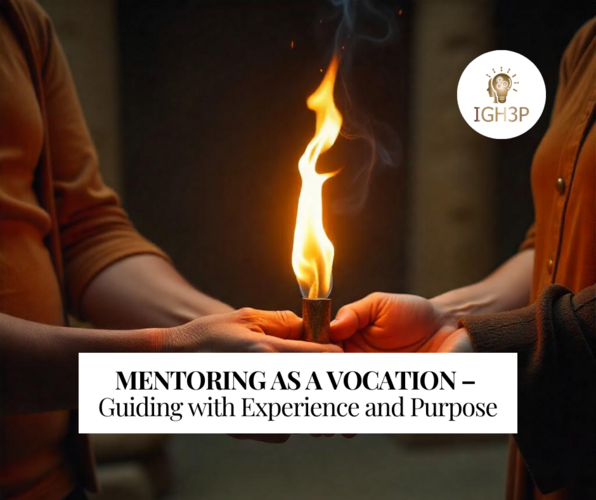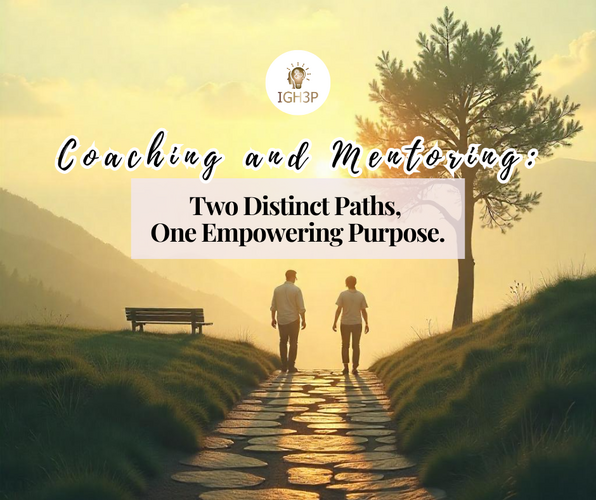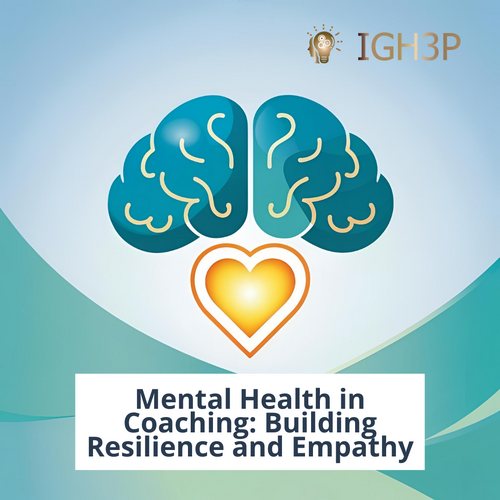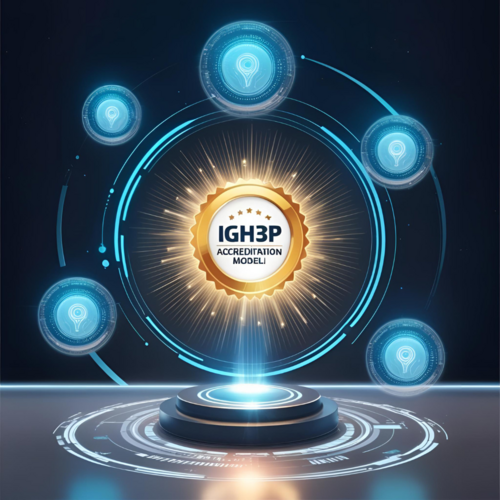Blog
coach
Mentoring as a Vocation – Guiding with Experience and Purpose
Mentoring as a Vocation – Guiding with Experience and Purpose
Mentoring, at its best, is an act of generosity, leadership, and legacy. Unlike coaching, which centres on facilitating a client’s self-directed growth, mentoring draws upon the mentor’s lived experience to guide, advise, and inspire another person—typically someone earlier in their personal or professional journey. For many seasoned practitioners, mentoring becomes a natural extension of their career—a vocation that allows them to g…
A Career in Coaching – Challenges, Skills and Fulfilment
A Career in Coaching – Challenges, Skills and Fulfilment
Coaching has become one of the most dynamic and transformative fields in the helping professions. Increasingly integrated into business, education, health, and personal development contexts, coaching offers individuals the opportunity to create change, realise goals, and deepen self-awareness. For those considering a career in coaching, it is both a deeply fulfilling and intellectually demanding path. However, to thrive, one must understa…
Coaching and Mentoring – Distinct Paths to Empowerment
Coaching and Mentoring – Distinct Paths to Empowerment
In the fields of personal growth and professional development, coaching and mentoring play vital roles in supporting individuals to unlock their potential. Though the two practices are sometimes conflated, they are fundamentally different in structure, intention, and impact. Understanding these differences is essential not only for those seeking guidance but also for individuals considering a career in either field.
Coaching is typically a…
Bouncing Forward: Resilience as a Competitive Advantage in Coaching
The coaching landscape is becoming saturated.
What will differentiate you? In 2025 and beyond, it is not just your certificates or methodologies — it is your resilience.
Clients are increasingly sophisticated; they seek coaches who can hold space for complexity, uncertainty, and vulnerability. Coaches who have personally developed strong emotional and mental resilience will naturally inspire trust and credibility.
Building resilience means bouncing forward, not just back. It means integrating…
Emotional Fitness: The New Frontier for Coaches
In an era increasingly aware of mental health, the future belongs to coaches who invest deeply in emotional fitness — their own and their clients’.
Emotional resilience is not innate; it is a cultivated competency, much like physical fitness. Just as strength training builds muscles, emotional challenges strengthen psychological flexibility. Aspiring coaches must view difficult emotions — anger, fear, sadness — not as enemies to avoid, but as invitations to grow.
Techniques such as mindfulness…
The Foundation of Coaching: Building Your Own Resilience First
As coaches, we often emphasize resilience in our clients.
But how often do we examine our own emotional and mental strength?
The coaching journey is deeply rewarding but equally demanding. If we aim to cultivate resilience in others, it must begin within ourselves.
Mental and emotional resilience isn't about being unaffected by challenges — it’s about our response to them.
Research by the American Psychological Association defines resilience as "the process of adapting well in the face of ad…
The Future of Coaching: AI and Ethical Practice
The Future of Coaching: AI and Ethical Practice
As the coaching profession evolves, Artificial Intelligence (AI) is emerging as a powerful ally. From automating administrative tasks to providing data-driven insights, AI has the potential to enhance the effectiveness of coaching practices.
Enhancing Client Engagement
AI can analyze client interactions to identify patterns, helping coaches tailor their approaches to individual needs. This personalized strategy can lead to more meaningful s…
The Role of AI in Enhancing Coaching Practices
The Role of AI in Enhancing Coaching Practices
Artificial Intelligence (AI) is revolutionizing various industries, and coaching is no exception. The integration of AI into coaching practices offers numerous benefits, from improved efficiency to enhanced client insights.
Enhancing Client Insights
AI tools can analyze vast amounts of data, providing coaches with deeper insights into client behaviors and patterns. This data-driven approach allows for more personalized coaching strategies, tail…
Mental Health in Coaching: Building Resilience and Empathy
Mental Health in Coaching: Building Resilience and Empathy
Mental well-being is integral to effective coaching.
Coaches must be equipped to recognize and address mental health challenges, fostering resilience and empathy in clients.
Training in emotional intelligence, active listening, and stress management techniques is essential. IGH3P emphasizes the importance of mental health in its programs, ensuring coaches can support clients holistically.
By prioritizing mental well-being, coaches co…
How IGH3P's Model for Accreditation and Certification Elevates Industry Standards
How IGH3P's Model for Accreditation and Certification Elevates Industry Standards
Introduction
In an unregulated global coaching industry, professional standards vary widely. As a result, distinguishing qualified practitioners from untrained individuals can be challenging for clients, employers, and institutions.
The International Guild for Hypnotherapy, NLP, and 3 Principles Practitioners and Trainers (IGH3P) addresses this critical issue by offering a robust and structured model for accr…
Blog
coach
Mentoring as a Vocation – Guiding with Experience and Purpose
Mentoring as a Vocation – Guiding with Experience and Purpose
Mentoring, at its best, is an act of generosity, leadership, and legacy. Unlike coaching, which centres on facilitating a client’s self-directed growth, mentoring draws upon the mentor’s lived experience to guide, advise, and inspire another person—typically someone earlier in their personal or professional journey. For many seasoned practitioners, mentoring becomes a natural extension of their career—a vocation that allows them to g…
A Career in Coaching – Challenges, Skills and Fulfilment
A Career in Coaching – Challenges, Skills and Fulfilment
Coaching has become one of the most dynamic and transformative fields in the helping professions. Increasingly integrated into business, education, health, and personal development contexts, coaching offers individuals the opportunity to create change, realise goals, and deepen self-awareness. For those considering a career in coaching, it is both a deeply fulfilling and intellectually demanding path. However, to thrive, one must understa…
Coaching and Mentoring – Distinct Paths to Empowerment
Coaching and Mentoring – Distinct Paths to Empowerment
In the fields of personal growth and professional development, coaching and mentoring play vital roles in supporting individuals to unlock their potential. Though the two practices are sometimes conflated, they are fundamentally different in structure, intention, and impact. Understanding these differences is essential not only for those seeking guidance but also for individuals considering a career in either field.
Coaching is typically a…
Bouncing Forward: Resilience as a Competitive Advantage in Coaching
The coaching landscape is becoming saturated.
What will differentiate you? In 2025 and beyond, it is not just your certificates or methodologies — it is your resilience.
Clients are increasingly sophisticated; they seek coaches who can hold space for complexity, uncertainty, and vulnerability. Coaches who have personally developed strong emotional and mental resilience will naturally inspire trust and credibility.
Building resilience means bouncing forward, not just back. It means integrating…
Emotional Fitness: The New Frontier for Coaches
In an era increasingly aware of mental health, the future belongs to coaches who invest deeply in emotional fitness — their own and their clients’.
Emotional resilience is not innate; it is a cultivated competency, much like physical fitness. Just as strength training builds muscles, emotional challenges strengthen psychological flexibility. Aspiring coaches must view difficult emotions — anger, fear, sadness — not as enemies to avoid, but as invitations to grow.
Techniques such as mindfulness…
The Foundation of Coaching: Building Your Own Resilience First
As coaches, we often emphasize resilience in our clients.
But how often do we examine our own emotional and mental strength?
The coaching journey is deeply rewarding but equally demanding. If we aim to cultivate resilience in others, it must begin within ourselves.
Mental and emotional resilience isn't about being unaffected by challenges — it’s about our response to them.
Research by the American Psychological Association defines resilience as "the process of adapting well in the face of ad…
The Future of Coaching: AI and Ethical Practice
The Future of Coaching: AI and Ethical Practice
As the coaching profession evolves, Artificial Intelligence (AI) is emerging as a powerful ally. From automating administrative tasks to providing data-driven insights, AI has the potential to enhance the effectiveness of coaching practices.
Enhancing Client Engagement
AI can analyze client interactions to identify patterns, helping coaches tailor their approaches to individual needs. This personalized strategy can lead to more meaningful s…
The Role of AI in Enhancing Coaching Practices
The Role of AI in Enhancing Coaching Practices
Artificial Intelligence (AI) is revolutionizing various industries, and coaching is no exception. The integration of AI into coaching practices offers numerous benefits, from improved efficiency to enhanced client insights.
Enhancing Client Insights
AI tools can analyze vast amounts of data, providing coaches with deeper insights into client behaviors and patterns. This data-driven approach allows for more personalized coaching strategies, tail…
Mental Health in Coaching: Building Resilience and Empathy
Mental Health in Coaching: Building Resilience and Empathy
Mental well-being is integral to effective coaching.
Coaches must be equipped to recognize and address mental health challenges, fostering resilience and empathy in clients.
Training in emotional intelligence, active listening, and stress management techniques is essential. IGH3P emphasizes the importance of mental health in its programs, ensuring coaches can support clients holistically.
By prioritizing mental well-being, coaches co…
How IGH3P's Model for Accreditation and Certification Elevates Industry Standards
How IGH3P's Model for Accreditation and Certification Elevates Industry Standards
Introduction
In an unregulated global coaching industry, professional standards vary widely. As a result, distinguishing qualified practitioners from untrained individuals can be challenging for clients, employers, and institutions.
The International Guild for Hypnotherapy, NLP, and 3 Principles Practitioners and Trainers (IGH3P) addresses this critical issue by offering a robust and structured model for accr…





